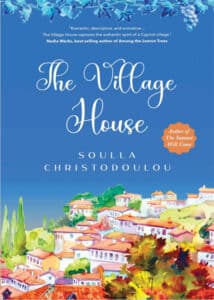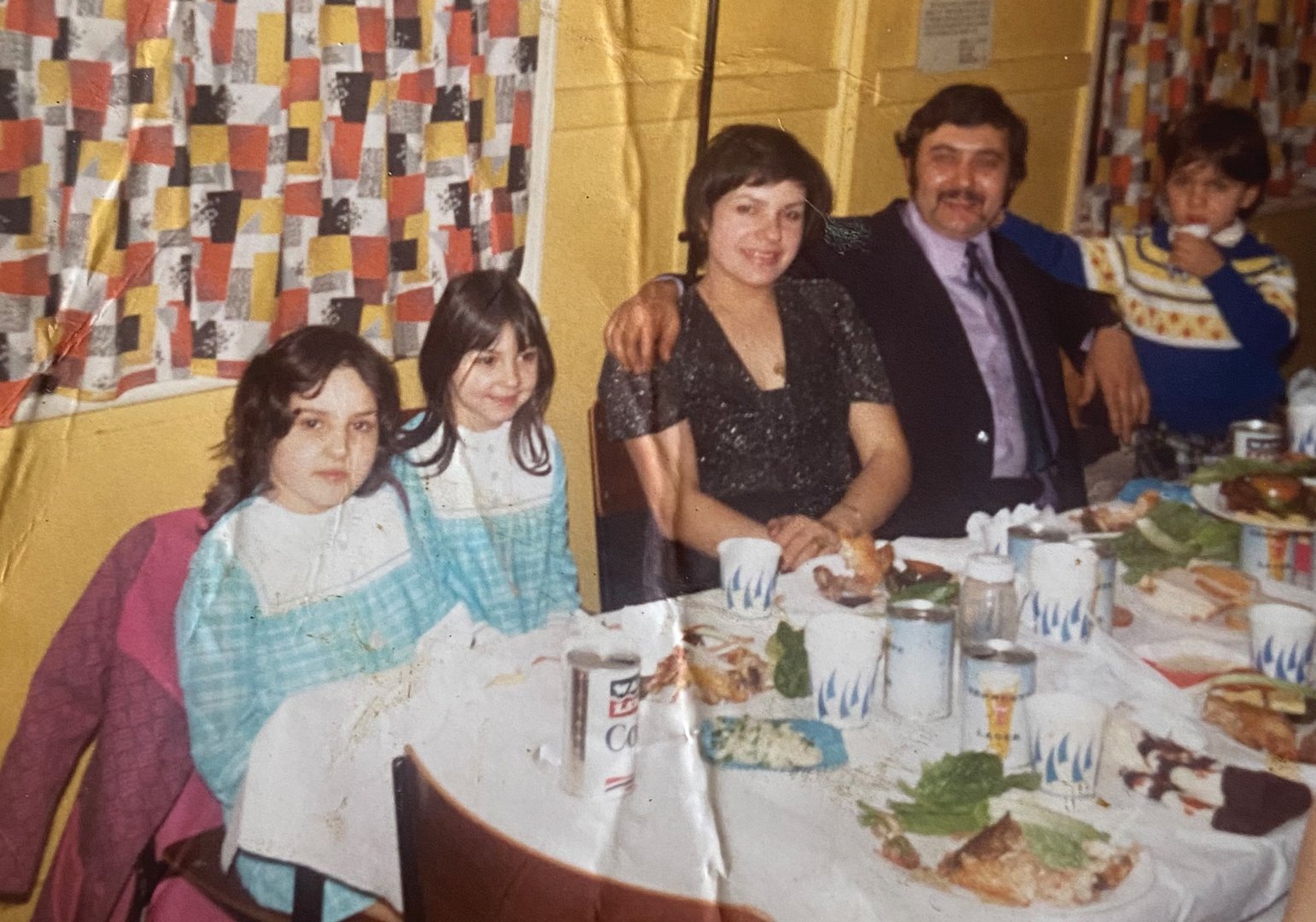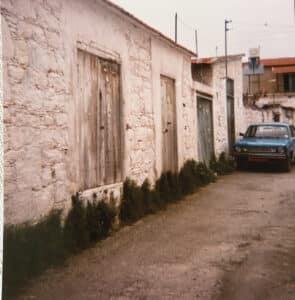In her latest novel, a British-Cypriot author looks at what constitutes ‘home’ for Cypriots brought up abroad
In her latest novel, London-based author Soulla Christodoulou, who has written about the 1950s diaspora in the past, brings us into the present, looking through the lens of the community at the island home long left behind…
The Village House is a tale that will resonate strongly with second and third-generation Cypriots who, like Soulla herself, yearn for a homeland that no longer exists. For the book’s protagonist, London-born Katianna, Cyprus is an island vaguely recalled from the holidays of her youth: summers in her grandmother’s mountain home; visits to the beach; and family lunches under the olives. But, since the death of her parents, Katianna’s memories of Cyprus have become an uncomfortable reminder of her buried past; life for our main character now revolves wholly around her successful career. Until, that is, her grandmother dies. And Katianna inherits her village house…
“I think I wrote The Village House to subconsciously create a happier ending to an event in my own life,” suggests Soulla. “Back in 1995, my paternal grandmother expressed a wish that her house in Cyprus would be mine when she passed. Sadly, a few days later, she died intestate. Her house, though still in our family, never came to me. But through this novel, I’ve been able to fictionalise what might have been.”
At the same time, explains Soulla, The Village House has allowed her to honour the memory of her yiayia, and embrace her Cypriot roots. Like her main character, Soulla was born and raised in the UK. And yet, for this author, Cyprus will always be ‘home’.
“In the course of my research, I talked to many people about this feeling, this yearning to go ‘back home’ to an island in which we’ve never lived. It’s a strange emotion. Our parents and grandparents came to England to build a new life for their families. And yet there’s a pull that has transcended the generations, which grips our hearts and souls and whispers ‘come home to Cyprus’.
It’s a pull that forces the book’s protagonist to return to the island, where she plans to oversee the renovation and sale of her grandmother’s house. But, once in Cyprus, long-forgotten memories start to resurface: for Katianna, the winding roads seem narrower now, the orchard swing less high. But the houses are just as picturesque; the songs just as sweet; and the coffee as dark and rich as it was in her youth. And time – time seems to flow differently…
“As she settles in to oversee weeks of construction, Katianna adapts to the slow pace of village life,” explains Soulla. “At first, it’s frustrating. The cobbles are too uneven for her high heels; the sun too hot; the food too rich. But gradually, she relaxes, leaning into the slower pace of life; the scenery and the residents work their magic. She buys a sunhat and flip flops, and she stops checking her email every few minutes…”
In many ways, it’s an idealised picture of island life. But the notion of ‘row upon row of vines and the open blue sky above; birds tweeting, the rustle of leaves, the whistle of the warm breeze, and all the while a gentle pull tugging at her heartstrings’ will resonate with many who grew up abroad. And – this being a love story – there’s more than just the scenery weaving its magic on our protagonist …
“Polis is contracted to work on her grandmother’s house,” says Soulla. “And though Katianna tries to ignore the spark between them, the builder finds ways to connect with her. He rescues her from a snake, and woos her with his love of Angelos Sikelianos’ poetry: ‘If I fell in love with you, I would like to Make my dreams come true, You could fulfill all yours too, So come on, Just one look will do, I’ll lose my heart to you, Like all the moonstruck do.’ And these two lives that appear to be diametrically opposed begin to reveal their similarities…”

“As I have got older, watching my own boys grow into young men, I’ve felt a tremendous pull to hold onto, to share, what my parents left behind in Cyprus,” the author acknowledges. “And I think this feeling is shared by thousands of Cypriots who now live in the wider diaspora, whose much-honoured and deeply-felt heritage has shaped our very souls…
“We, the second- and third-generation Cypriots have built our lives abroad,” she continues. “We have absorbed new ideas and ways of living, embraced a new language and new traditions. Yet, like the main character in the book, our hearts have continued to beat for Cyprus. And on returning ‘home’ to the island, I think we always feel pulled in two directions at once.”
For the book’s protagonist, unencumbered by family or children, the pull is very strong: decisions must be made. But Soulla’s not giving anything away! If you want to find out if Katianna swaps her Burberry for a bikini, her Bacardi for a brandy sour, and her beef Wellington for baclava, you’ll just have to read The Village House!
Published by Kingsley Publishers, The Village House is available at a cost of €2.99 (ebook) and €14.61 (paperback) from amazon.co.uk, Waterstones, Barnes & Noble, and all good bookshops. For more information on Soulla’s novels, visit https://soulla-author.com/








Click here to change your cookie preferences